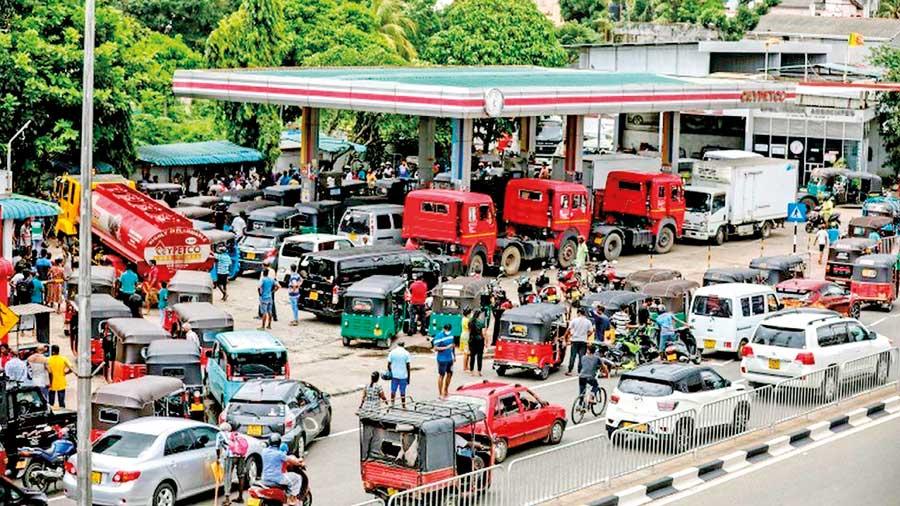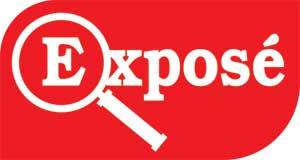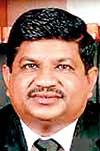08 Aug 2022 - {{hitsCtrl.values.hits}}

Critics opine that if skilled business leaders in Sri Lanka are allowed to import fuel using their overseas connections it could help break the monopoly the CPC has on the supply of fuel
"It will not be a surprise if the very same people who created an artificial fuel crisis in the country are behind the importation of fuel"
"The business community believes allowing the private sector to import fuel would solve the crisis"
"Back then people were not made to suffer concurrently with the increase of fuel price in the world market"
"The political authority got in the way of control of the CPC and reduced fuel prices to offer concessions"
"The CPC employees didn’t have work, but salaries and incentives paid to them amounted to more than 400 million rupees"
"At present the Government owes the CPC about 600 billion rupees"
"When fuel is sent to the terminals in bowsers, the distribution to other areas doesn’t happen systematically"
 The QR code system introduced to reduce fuel queues has been a success so far. However, even with such a system in place people are still waiting in queues due to the failure of the Government. At present there aren’t sufficient fuel stocks to be distributed. Public Utilities Commission (PUC) Chairman Janaka Rathnayake recently said that the fuel imported by the Ceylon Petroleum Corporation (CPC) could be sold to the public 200 rupees less than the current price per litre. According to him, what happens to the profit raised through this method is unknown. However though the CPC is said to earn such high profits this institute ends up making losses in the end. The reason for this is the monopoly the CPC has on the fuel supply, according to critics.
The QR code system introduced to reduce fuel queues has been a success so far. However, even with such a system in place people are still waiting in queues due to the failure of the Government. At present there aren’t sufficient fuel stocks to be distributed. Public Utilities Commission (PUC) Chairman Janaka Rathnayake recently said that the fuel imported by the Ceylon Petroleum Corporation (CPC) could be sold to the public 200 rupees less than the current price per litre. According to him, what happens to the profit raised through this method is unknown. However though the CPC is said to earn such high profits this institute ends up making losses in the end. The reason for this is the monopoly the CPC has on the fuel supply, according to critics.
The Government does not have dollars or rupees to import fuel for the next two months. According to Petroleum Trade Union Confederation Convener Ananda Palitha the Government is planning to protect the remaining fuel stocks until September. Given such a situation, the Government might try out new strategies to save the fuel stocks, according to Palitha.
One such strategy was witnessed on July 26 and that was a plan to find a solution to the fuel crisis. The plan was to allow the private sector to import fuel. The Ministry of Power posted an advertisement on July 26 in the Daily News calling for tenders. Accordingly, private companies willing to import fuel were required to submit their bids before August 8.
 If that advertisement was posted to find a genuine solution to the fuel crisis in the country it can be considered as a good move. However, its success cannot be predicted as yet. It will not be a surprise if the very same people who created an artificial fuel crisis in the country, are behind the importation of fuel in this manner. Some people created an opinion in society that fuel should be imported from anywhere to reduce the queues. It is unclear whether they are trying to legalise the said strategy to earn profits by importing fuel at higher prices.
If that advertisement was posted to find a genuine solution to the fuel crisis in the country it can be considered as a good move. However, its success cannot be predicted as yet. It will not be a surprise if the very same people who created an artificial fuel crisis in the country, are behind the importation of fuel in this manner. Some people created an opinion in society that fuel should be imported from anywhere to reduce the queues. It is unclear whether they are trying to legalise the said strategy to earn profits by importing fuel at higher prices.
It was reported that when the country ran out of dollars when purchasing fuel, spot purchases were made from foreign companies belonging to several well connected people in the country. These companies are yet to respond to inquiries made by this newspaper. If they are now attempting to make hay while the sun shines the media should focus on their next move. If allowing the private sector to import fuel is an act of transferring the fuel monopoly to these well connected people such activities cannot be approved. However if it was carried out in a transparent manner, that would be the best option at the moment.
A wise decision
Former MP Lakshman Wasantha Perera said that allowing private companies to import fuel can be considered a wise decision. If skilled business leaders in Sri Lanka could import fuel using their overseas connections that could break the monopoly the CPC has on the supply of fuel, according to Perera. “Importing fuel is open to anyone. The companies previously spoken about can import fuel in this manner. We will forward our application to import oil separately. The fuel stocks imported in this manner would be issued either at high prices or low prices as we cannot provide fuel at concessional prices like how the Government does. The Government tax is 85 rupees per litre of fuel. There are other taxes too. The value of the dollar also affects the price of fuel. However, it now seems that the government might not be able to issue fuel at low prices, according to Perera.
“If we are permitted to import fuel, I can supply fuel to every filling station in Matale two days a week. We do not import fuel in vessels. We import diesel in bulk bags. 218 tonnes can be imported weekly and will be sufficient for the Matale precinct. We import petrol in drums. We can import 18,000 tonnes of petrol in drums. We can also provide kerosene in addition.
“The shortage of dollars created this crisis. We have been experiencing this crisis for a year. Our foreign reserves declined and we failed to repay our foreign loans. That was how the crisis started. The Central Bank announced in June that we are unable to pay off our loans. If it is the private sector that imports essential food items and fertilizer, it is a wise decision to let them import fuel as well.
“The fuel crisis we witness at present is not as much a huge crisis as we have been made to believe. The price rates of OPEC and the Gulf Arabic Region decide the global fuel price. We have connections with foreign companies in the business world. We can find a solution to this crisis by importing fuel through those companies. The CPC is authorised to import fuel. It distributed the fuel. That is a monopoly. Now the CPC is unable to carry out the process. Allowing the private sector to import fuel will solve the crisis.” he added.
According to Palitha, the CPC incurs losses only because of the drawbacks of the Government and otherwise it would not. “Sirimavo. Bandaranaike, T. B. Ilangaratne and Vincent Subasinghe took over the fuel supply under the control of the Government in 1960. The CPC was established in 1961 at a time when fuel was not in great demand and a burden on the economy like at present. Premier Bandaranaike took over the fuel supply under the control of the Government. With that we got oil tanks. We became stronger and our objective was to regularly supply high-quality fuel to people in a transparent manner.
  "The CPC was established in 1961 at a time when fuel was not in great demand and a burden on the economy like at present. Premier Bandaranaike took over the fuel supply under the control of the Government. With that we got oil tanks. We became stronger and our objective was to regularly supply high-quality fuel to people in a transparent manner" - Ananda Palitha Petroleum Trade Union Confederation Convener "The CPC was established in 1961 at a time when fuel was not in great demand and a burden on the economy like at present. Premier Bandaranaike took over the fuel supply under the control of the Government. With that we got oil tanks. We became stronger and our objective was to regularly supply high-quality fuel to people in a transparent manner" - Ananda Palitha Petroleum Trade Union Confederation Convener |
“Dudley Senanayake, who assumed power, improved this even more by establishing the refinery in 1967. Back then people were not made to suffer concurrently with the increase of fuel price in the world market. We supplied fuel to ships and airplanes and provided gas to earn dollars and regulated the fuel price. This is how the CPC operated. When powerplants like Mahaweli supplied electricity, the CPC issued fuel. Fuel distribution was done by trains instead of bowsers and it was cheaper. Storage capacities were expanded during J. R. Jayewardene’s time to increase the fuel supply. The CPC did not incur losses back then.” he said.
However, governments which came to power later took control of the CPC. The independent pricing formulae was removed and the rulers began to regulate the price. Back then fuel was purchased while maintaining transparency. Spot purchases were not even an option. Fuel was purchased through agreements between states, according to Palitha.
“We did not receive low-quality fuel back then. It was necessary to submit price rates and stocks to be sold to the Finance Ministry in order to receive approval. Given such a situation, the political authority got in the way of control of the CPC and reduced fuel prices to offer concessions. The Government repaid that sum in small amounts. This was halted in June 2006. By then (2006) the Government owed more than 53 million rupees to the CPC and 11 million rupees to the Indian oil Corporation. The Government only settled dues with the IOC. At present the Government owes to the CPC about 600 billion rupees. In addition state and semi-state institutions are to pay billions of rupees to the CPC. If these funds are received, the CPC will not incur any loss.
“The Government that requested not to increase the fuel price benefitted by imposing huge taxes on fuel. The Government retained those funds and did not pay the CPC for the fuel provided at concessionary prices. The Government looted the CPC funds. This was the reason why the CPC has collapsed, according to Palitha.
He also said that the Government and the Minister of Power and Energy are scheming a new plan. “The minister now announces the exact dates the vessels arrive as payments have been made to them. If so there is no need to pay demurrages. According to the minister the payments were made to the vessels which arrived on June 16 and 21 three weeks ago. One vessel is an Indian tanker. It only takes four days to import oil from India. The vessel from Singapore takes nine days to arrive. But payments were made three weeks ago and the vessels have taken more than four weeks to arrive in Sri Lanka. The maximum days a vessel takes to arrive in Sri Lanka is nine. There is a fraudulent activity involved here,” said Palitha who added that spot purchases are made from associate companies and there are certain people who obtain commissions.
“The minister had ample time to introduce an App while waiting for three weeks for the vessel to arrive. But he neither launched such an app nor distributed fuel. The CPC employees did not have work. Salaries and incentives amounting to more than 400 million rupees had to be paid. During these two months only the fuel brought in two vessels was distributed. During those 21 days, there was enough time to make vehicle owners register using a QR code. But the Government did not have a plan,” said Palitha. People are still forced to join queues. Customers are forced to obtain fuel using the App while only two bowsers are dispatched weekly to filling stations. The Government does not have dollars to import fuel. It is involved in gimmicks to keep the fuel stocks going till next September.
“The Government charges as tax 59 rupees from a litre of Octane 92 petrol, 80.84 rupees from Octane 95 petrol, 37.60 rupees from diesel and 78.18 from super diesel. These taxes go to the Government. Bowsers are used to distribute fuel at the expense of an additional 60% when the stocks in the 13 storage terminals can be distributed in trains. We can save money by doing so. When fuel is sent to the terminals in bowsers, the distribution to the other areas does not happen systematically. Fraudulence is present everywhere and should be ended,” opined Palitha.
  "If we are permitted to import fuel, I can supply fuel to every filling station in Matale two days a week. We do not import fuel in vessels. We import diesel in bulk bags. 218 tonnes can be imported weekly and will be sufficient for Matale precinct" - Lakshman Wasantha Perera Former MP "If we are permitted to import fuel, I can supply fuel to every filling station in Matale two days a week. We do not import fuel in vessels. We import diesel in bulk bags. 218 tonnes can be imported weekly and will be sufficient for Matale precinct" - Lakshman Wasantha Perera Former MP |
Now the Government claims that there are no dollars to import fuel. There is an ongoing attempt to allow the private sector to import fuel. According to Palitha the government is trying to pass the fuel import ownership to those who imported fuel from companies in Dubai and Qatar under spot purchases. By creating a fuel shortage these people wielding power wish to see their companies having the authority to import fuel. They recently tried to purchase a vessel load of fuel from Dubai using an address of a food stall, situated in the Borella market. This attempt was halted when details were made public. “I suspect whether they are trying to obtain the authority to import fuel legally via tenders,” Palitha added.
Attempts made to contact CPC Chairman Sumith Wijesinghe proved futile.
Minister of Power Kanchana Wijesekara could not be contacted either. However, recently, he pointed out that importing fuel for the next two months would be difficult and this crisis would last until next year.
The CPC recently informed businessmen in the export industry to get registered to obtain fuel for dollars. The registration was carried out through the Export Development Board (EDB).
Many exporters sent their details to the EDB via the email provided last month. However most of them are yet to receive a reply confirming the receipt of emails and notifying measures to be taken or about any registration. They have tried to contact the EDB, but such efforts proved futile. They have later learnt that to obtain fuel for dollars, they have to pay a bribe of 150,000 rupees for each load of fuel. They questioned how they could carry out their export activities while bribing officers for each load of fuel they receive. The officers have not issued fuel to those who have refused paying the bribe.
The public is also at risk of not obtaining fuel received by stations because of the presence of thugs present at filing stations. These thugs do not remain in queues. When a filling station receives fuel they try to obtain fuel for their associates by jumping the queues. Therefore people remaining in queues for days do not get any fuel at all.
Police officers assigned to oversee security at fuel queues have failed to control these goons. Fuel stations have turned into being risky places. These goons do not let other people obtain fuel and are engaged in fuel rackets with the fuel they purchase. People have made requests to have Army officers together with Police officers to unsure safety at filling stations. Otherwise fuel distribution will turn out to be ineffective, they said. Some people have opted to buy fuel as their job and because of the activities of these ‘petrol vendors’ those who buy fuel to go to work will never have fuel.
12 Jan 2025 15 minute ago
12 Jan 2025 48 minute ago
11 Jan 2025 11 Jan 2025
11 Jan 2025 11 Jan 2025
11 Jan 2025 11 Jan 2025